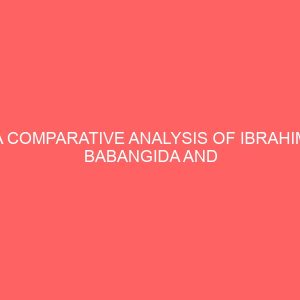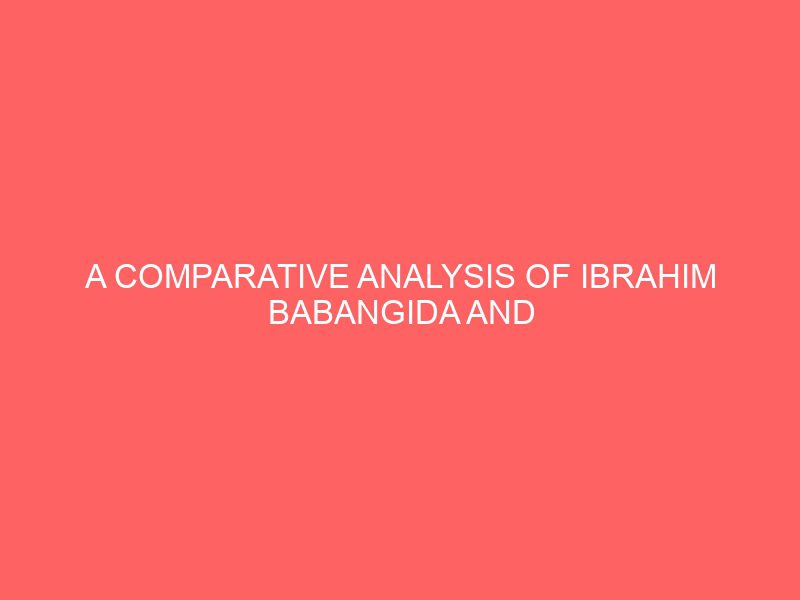Description
Abstract
This research work centered on the comparative analysis of Ibrahim Babangida and Sani Abacha’s transition programs and its implication on democratic dispensations which covers a period between 1999 till date. The main objective of this research work is to analyze the transition program of Ibrahim Babangida and Sani Abacha’s transition and examine the success and failure of each transition programme of the two military rulers. The method used in collecting data was mainly primary and secondary techniques and questionnaires were administered to a population size comprised of three hundred and fifty (350). A sample of one fifty (150) respondents was selected for this research work through random sampling techniques. Based on the data presented and analyzed, the following finding was made that the effect of Ibrahim Babangida and Sani Abacha’s transition programme and military rule brought about economic retrogression. As a result of the constitutional provision in dealing with complex problems of the military question in Nigerian politics, this study has come up with the following as its own panacea to solve the military question and attain the goal of transition to an orderly society. The people of Nigeria should have real decision-making powers. This entails among other things a powerful legislature, decentralization of power to the local democratic formation as presently the military have over-centralized power and decision into the hands of the central government believing in the hierarchy of command where the commander in chief is all and all translated into political practice a“political octopus”.








Reviews
There are no reviews yet.